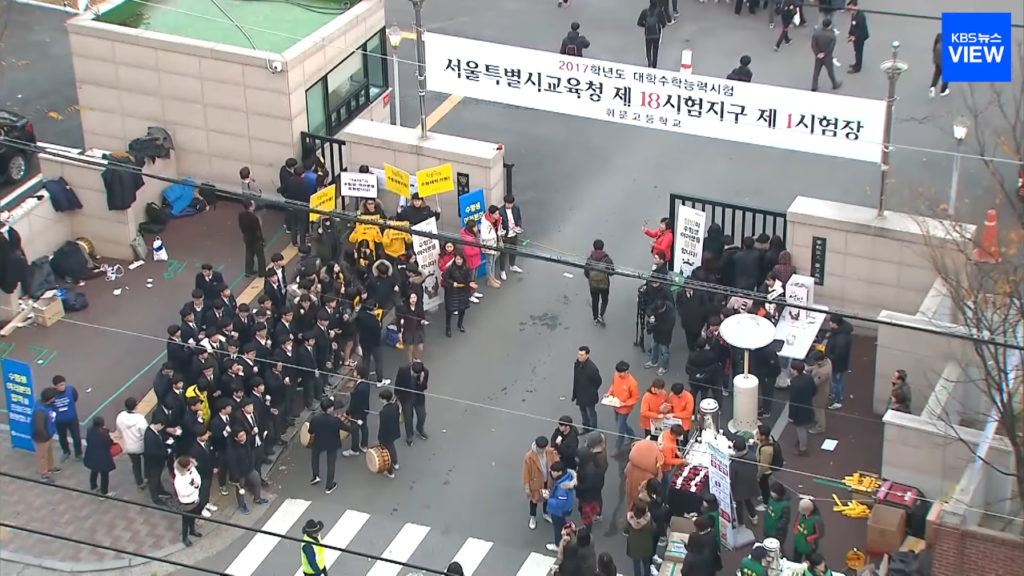The Peninsula
Korea Pursues National Exams Despite the Pandemic

This briefing comes from Korea View, a weekly newsletter published by the Korea Economic Institute. Korea View aims to cover developments that reveal trends on the Korean Peninsula but receive little attention in the United States. If you would like to sign up, please find the online form here.
What Happened
- Although postponed for a month, students sat for the annual College Scholastic Ability Test (CSAT) under stricter safety measures.
- The number of CSAT test centers increased by 50 percent from last year. Fewer students were assigned to each location and plastic dividers were installed to enable social distancing.
- For students who have tested positive or were in self-quarantine, the government provided the CSAT at hospitals and other designated facilities.
Implications: The government’s decision to proceed with the CSAT underscores the importance that Korean society places on access to higher education. Although holding the exam raised the risk of transmission because every Korean student is required to take the test on the same day, both the government and civil society considered further postponement impossible. In this environment, some provinces elevated their social distancing level ahead of the exam. In addition, regional health centers began operating 24 hours so that students could be tested for COVID-19 and isolated when taking the exam. This is in strong contrast to other countries where national exams have been entirely canceled or further postponed as global transmission rates have increased in recent weeks.
Context: Graduating from one of the top universities is one of the most important qualifications for job seekers in Korea. Correspondingly, CSAT is taken extremely seriously because universities weigh the test scores heavily in the admissions process. But the emphasis on the CSAT also created many negative social outcomes. The average Korean student undergoes 6.4 years of additional schooling versus their peers in other Organisation for Economic Co-operation and Development (OECD) member countries. This also contributes to Korean youths recording the lowest happiness rate and highest suicide rate within the OECD. As this year’s CSAT was placed in an unprecedented environment, the government expressed further concerns on students’ mental health.
Korea View was edited by Yong Kwon with the help of Sophie Joo and Chris Lee.
Photo from KBS 뷰 photostream on Wikimedia Commons.
